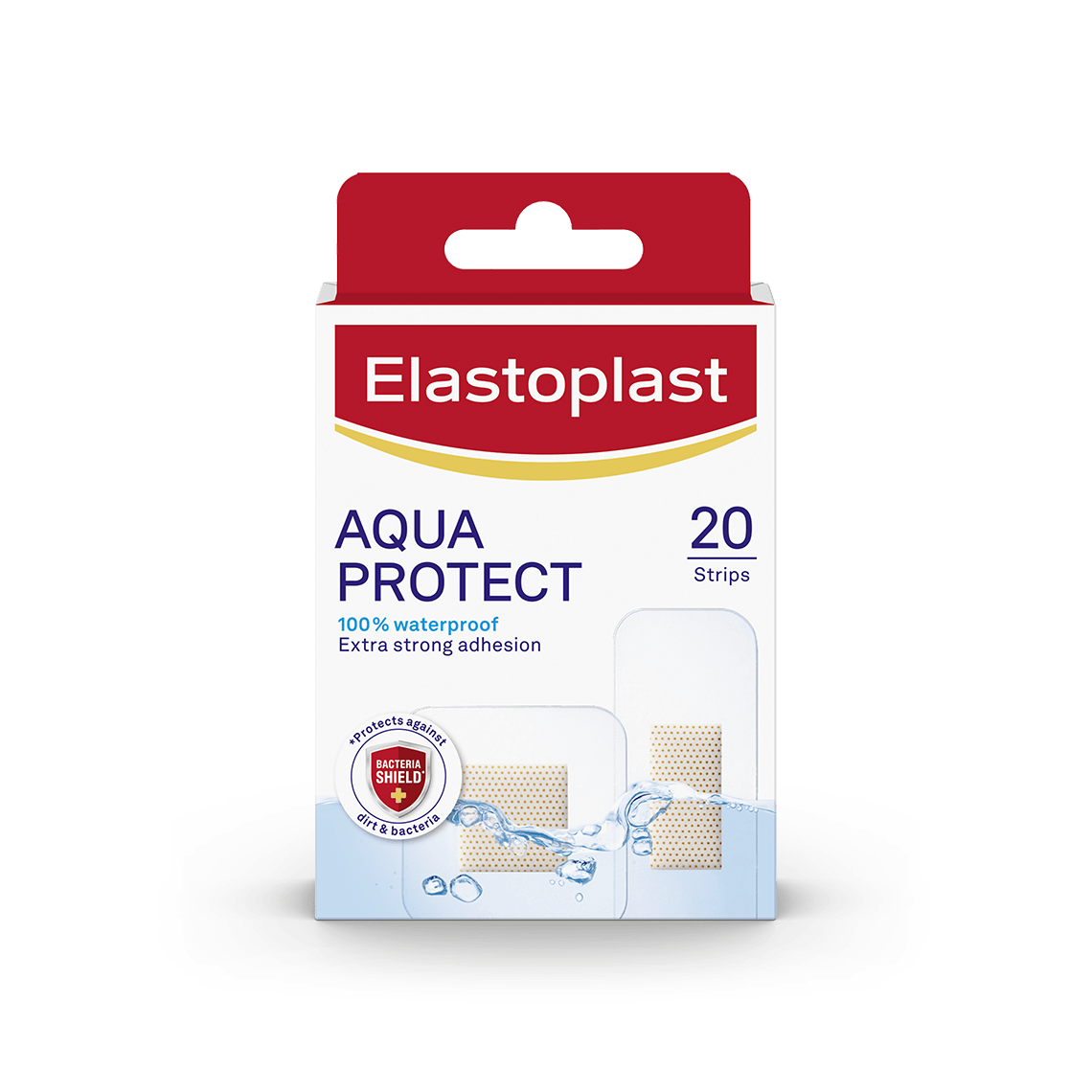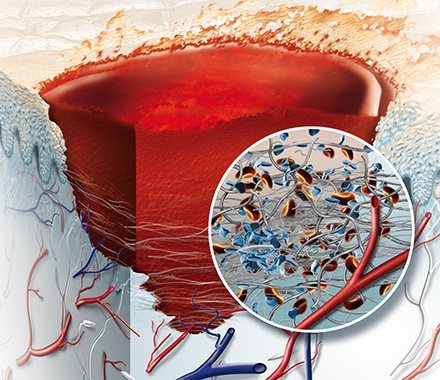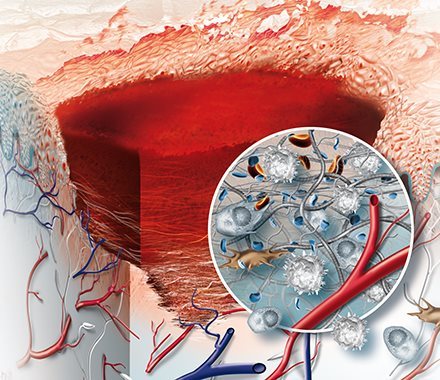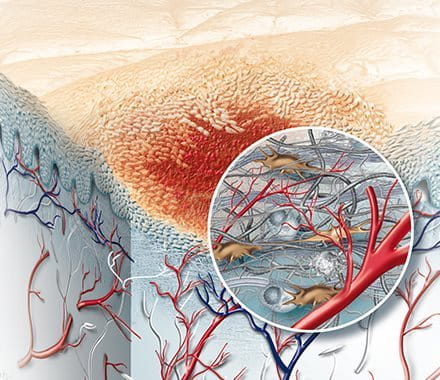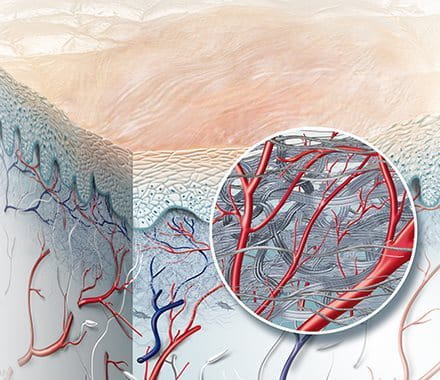Understanding the stages of wound healing
How to speed up wound healing?
1. Cleanse
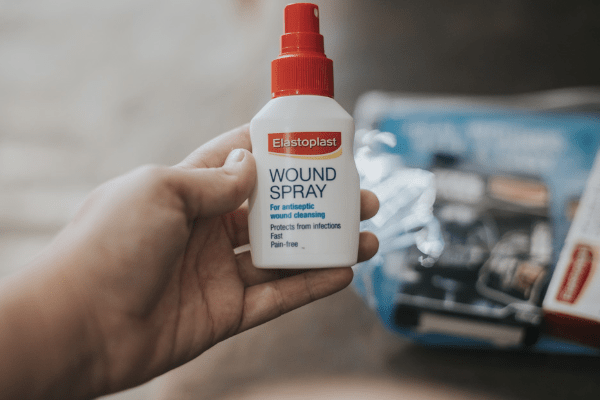
A clean wound is the essential first step for optimal healing. Cleanse your wound from dirt, bacteria and visible particles with the Elastoplast Wound Spray to prevent infections.
2. Protect
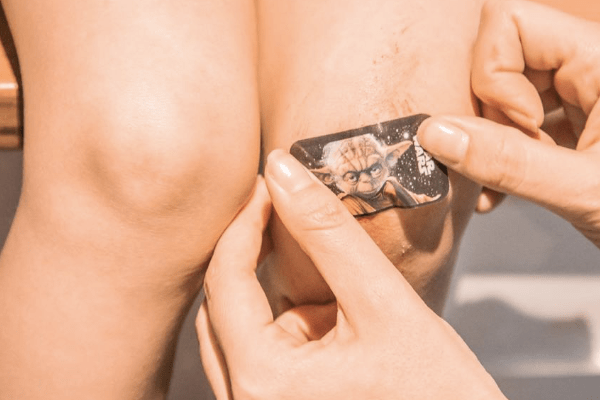
The second step is to protect your wound from dirt and bacteria to enable and undisturbed healing. Cover your wound with a plaster, sterile wound dressing or compress from Elastoplast.
3. Heal
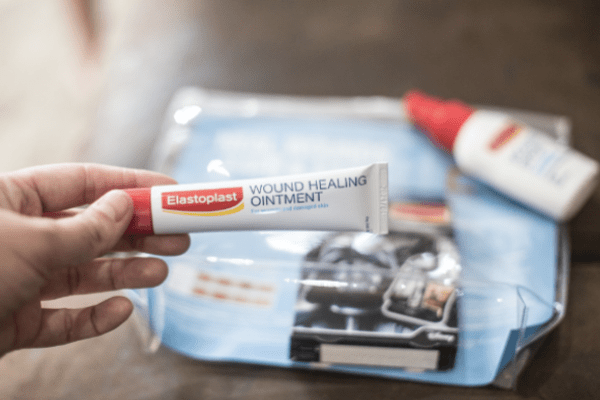
Studies have shown that under moist conditions cells will grow, divide and migrate at an increased rate to optimise the wound healing process. In a moist healing environment, scabs – which inhibit the formation of new tissue – are prevented. This helps reduce the risk of scarring, improving the aesthetic outcome.
The benefits of moist wound healing
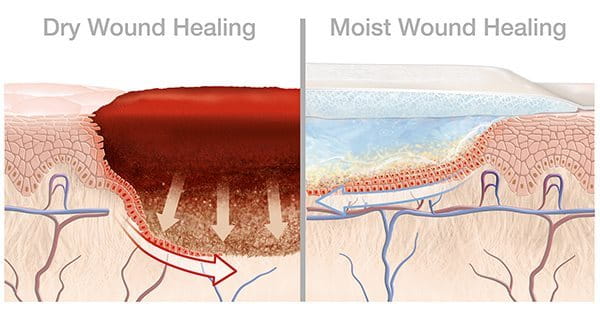
- No crust formation
- Faster wound healing
- Reduced risk of scarring
The advantages of Wound Healing Ointment
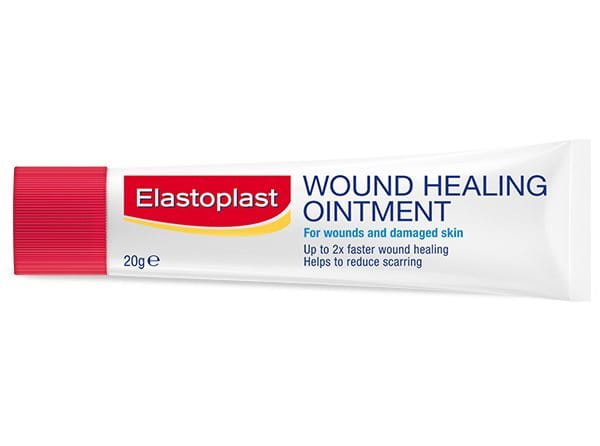
The advantages of Elastoplast Heavy Fabric Plasters

The Elastoplast Heavy Fabric Plasters are based on an advanced technology providing ideal moist wound healing conditions and permitting control of the moisture level and temperature of the wound. They are suitable for covering all types of smaller wounds, even those after minor surgery.
Always see a doctor if the wound is deep, bleeds heavily or shows signs of infection like reddening, swelling or warmth. Please note that, although these were compiled with great care, the tips and advice given on this website by no means substitute medical advice and treatment. If you have or suspect a health problem, consult a doctor and follow medical advice regardless of what you have learned on this website. Always read carefully and follow the instructions for use or the leaflets of our products.
For further information regarding Elastoplast products, please contact us via email on Consumer care: ConsumerSA.External@beiersdorf.com or phone: 0860 102 091.
